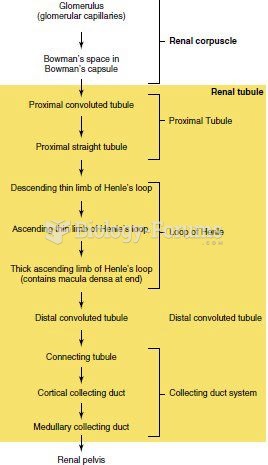Answer to Question 1
Inadequate iron intake is often seen in children, teenagers, women of childbearing age, and endurance athletes. If iron absorption does not compensate for losses or if dietary intake is low, iron deficiency develops. As many as half of American women have an iron deficiency. Over time, excessive depletion of iron stores in the body leads to iron-deficiency anemia, a condition in which the concentration of hemoglobin in the red blood cells is lower than it should be.
Physically active individuals, in particular women, have a greater than average need for iron. Heavy training creates a demand for iron that is higher than the recommended intake because small amounts of iron are lost through sweat, urine, and stools. Mechanical trauma, caused by the pounding of the feet on the pavement during extensive jogging, may also lead to destruction of iron-containing red blood cells. A large percentage of female endurance athletes are reported to have iron deficiency.
In most cases, people can get enough iron by eating more iron-rich foods such as beans, peas, green leafy vegetables, enriched grain products, egg yolk, fish, and lean meats. If you are iron-deficient, however, be aware that calcium interferes with iron absorption. Thus, try not to include dietary sources of calcium with your main iron-rich meal. This is particularly critical in young menstruating women who need the iron.
Answer to Question 2
Proper nutrition is essential to overall health and wellness. Good nutrition means that a person's diet supplies all the essential nutrients for healthy body functioning, including normal tissue growth, repair, and maintenance. The diet should also provide enough substrates to produce the energy necessary for work, physical activity, and relaxation. Nutrients should be obtained from a wide variety of sources. Too much or too little of any nutrient can precipitate serious health problems.
Diseases of dietary excess and imbalance are among the leading causes of death in many developed countries throughout the world, including the United States. A diet high in saturated fat and cholesterol increases the risk for diseases of the cardiovascular system, including atherosclerosis, coronary heart disease (CHD), and strokes. In sodium-sensitive individuals, high salt intake has been linked to high blood pressure. Up to 50 percent of all cancers may be diet related. Obesity, diabetes, and osteoporosis also have been associated with faulty nutrition.







